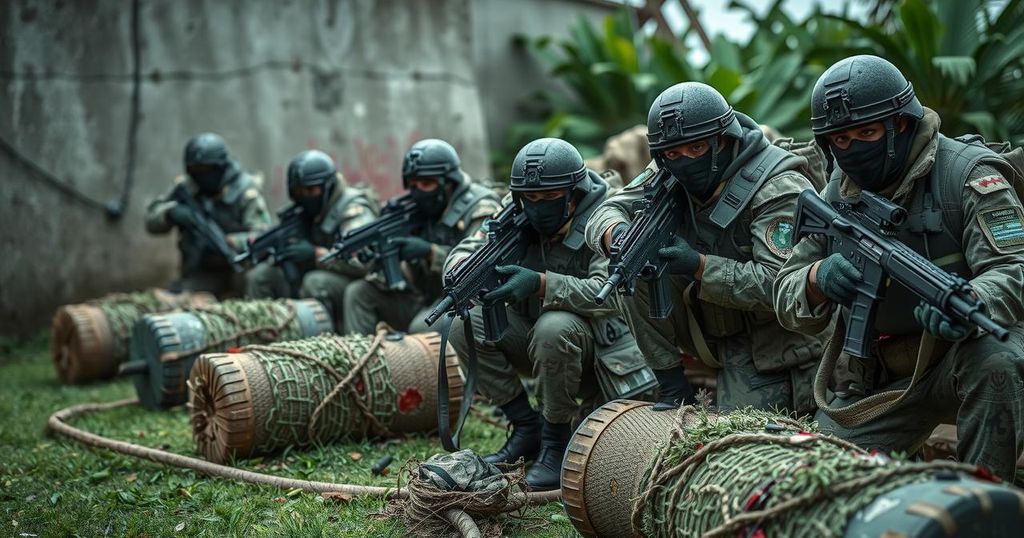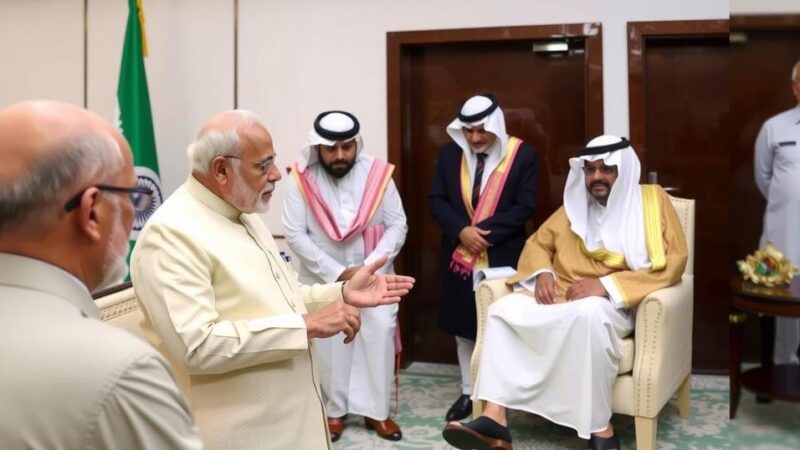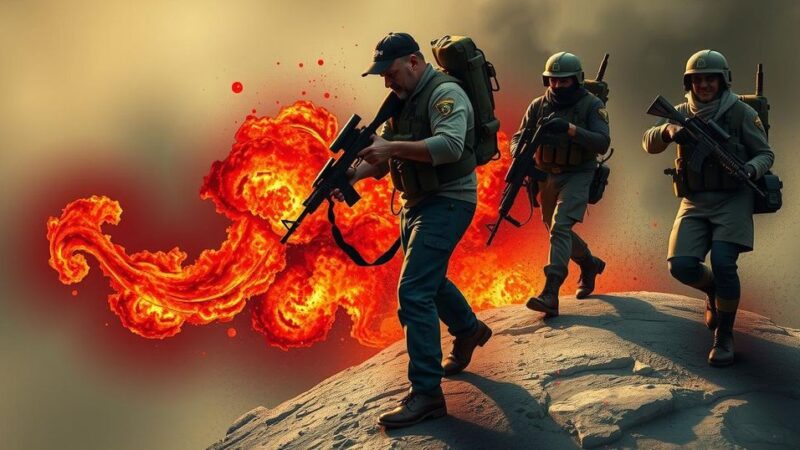Colonel Romuald, a French military veteran, leads a team from Agemira in Goma, DRC, advising the local army against the M23 militia, reportedly backed by Rwanda. The foreign mercenaries, including Romanians, face challenges such as unequal pay and military discipline compared to local forces. Despite efforts, fighting continues, exacerbating tensions and raising questions about their role in a conflict marked by inequities and international implications.
Colonel Romuald, a retired French army paratrooper, finds himself leading a mission in Goma, Democratic Republic of the Congo (DRC), where he oversees a team from the Bulgarian private security company, Agemira. This company had been contracted two years prior to advise the Congolese army in its fight against the M23 militia, which has reinvigorated its rebellion with alleged support from Rwanda. Despite the potential for diplomatic resolution, the situation remains volatile, with ongoing skirmishes and a lack of progress in the peace talks.
Romuald’s team comprises mostly his former French military peers, tasked with offering strategic support, such as maintaining and supplying military aircraft and facilitating arms contracts. The operations also involve Romanian mercenaries from a company called RALF, who, despite their significant pay and benefits, have faced issues with timely wage disbursement, leading to desertions from the Congolese military ranks. The disparity in compensation—foreign mercenaries earning up to six thousand dollars monthly compared to Congolese soldiers’ a few hundred—has led to friction and perceptions of inequity.
Romuald believes their presence is justified, perceiving their mission as one of nobility, claiming, “Rwanda is occupying DR Congo in violation of international law.” However, he acknowledges that despite their efforts, the foreign contingent struggles against Rwandan technological and tactical superiority on the battlefield. Human rights concerns have been raised, yet there is no current evidence implicating Agemira or RALF in criminal activities typical of other private military contractors operating in conflict zones.
Colonel Romuald describes his role as a consultant and does not condone mercenarism, stating that any action resembling that could lead to consequences back home in Europe. In essence, he and his team are portrayed not as mercenaries but as protectors of Goma. Nevertheless, the complexities of military contractors in the DRC highlight the ongoing struggle for local forces amid external interventions that often skew the balance of power in conflicts.
The article discusses the situation in Goma, DRC, where foreign mercenaries, originally enlisted to counter the insurgent M23 militia, have become integral to the local military efforts. This context includes the ongoing civil strife characterized by external influences, particularly from Rwanda, and the involvement of private military companies. The precarious security situation is exacerbated by the economic challenges faced by the local army, contrasting sharply with the benefits received by their foreign counterparts. Thus, the article outlines the multifaceted nature of mercenary involvement in modern conflicts, underscoring both the motivations and complications encountered in such missions.
The presence of foreign mercenaries in Goma reflects a broader trend of privatized military interventions where local forces face overwhelming challenges. While Colonel Romuald and his team perceive their role as noble, the reality on the ground indicates a struggle against well-equipped and disciplined adversaries. The disparity in conditions and pay between local and foreign soldiers raises ethical concerns about exploitation and effectiveness in achieving stability in the DRC. The situation remains unresolved, with a complex interplay of international law, military integrity, and human rights considerations still at play.
Original Source: www.dw.com







